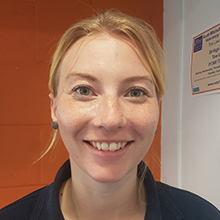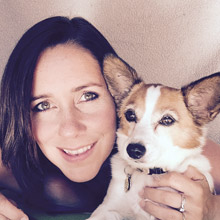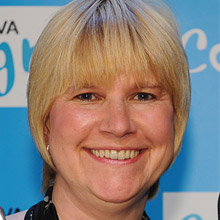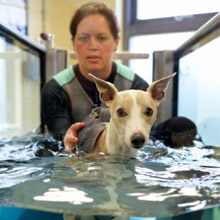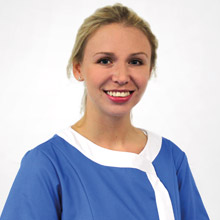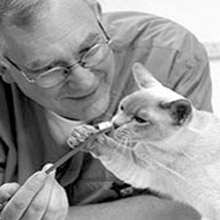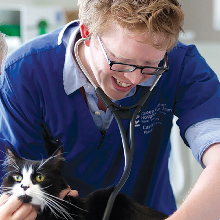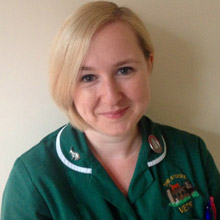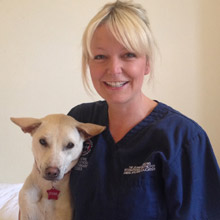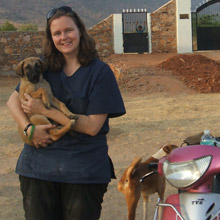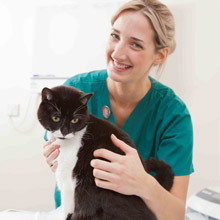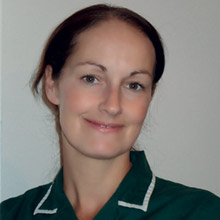Clinical Abstracts and blogs
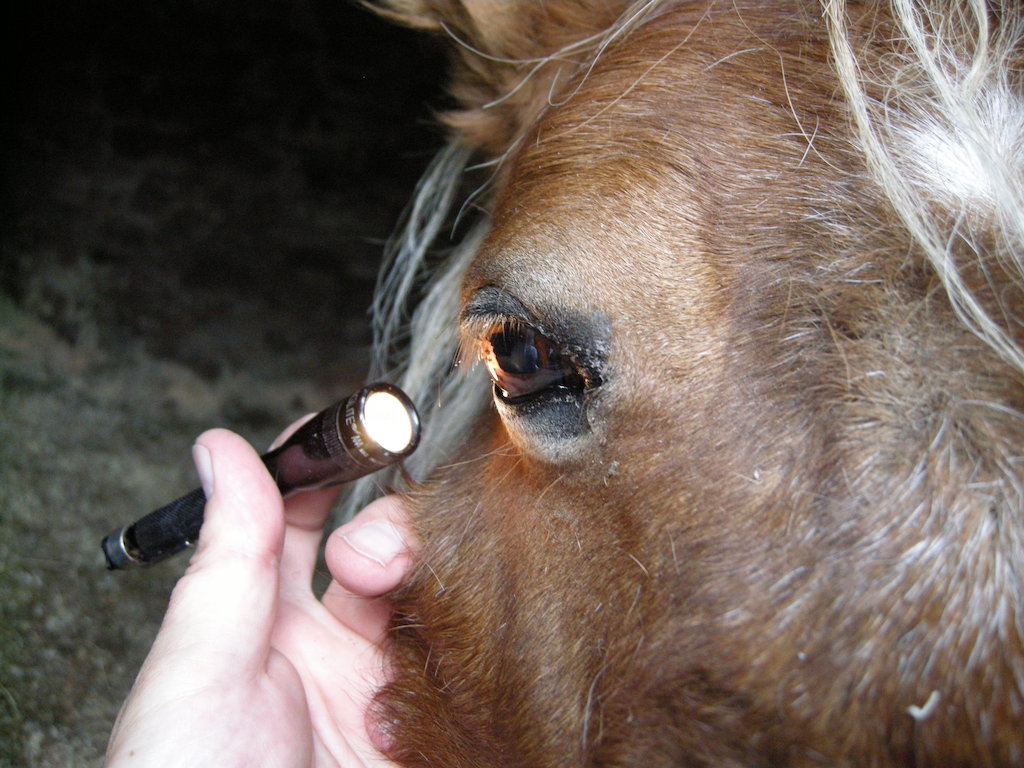
Eye problems in the horse
The size and prominence of the equine eye means that disease and injury to the eye are common occurrences. Many...

Locating neurological lesions
Whilst neurology is an area of specialisation, most neurological lesions initially present in first opinion practice. Therefore, every general...
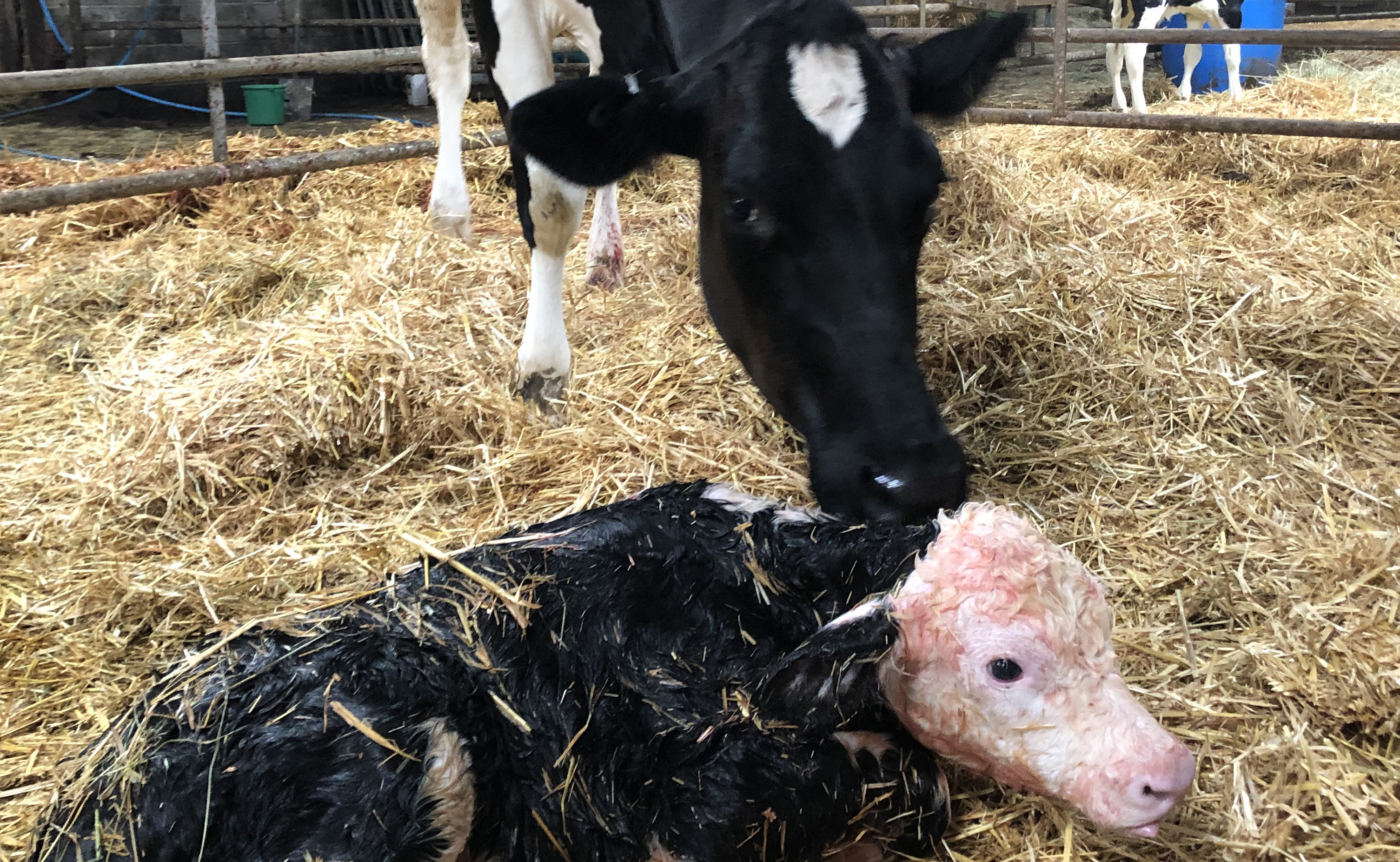
Common calving problems
The objectives for managing a cow at calving should be the same regardless of whether the cow is in a...
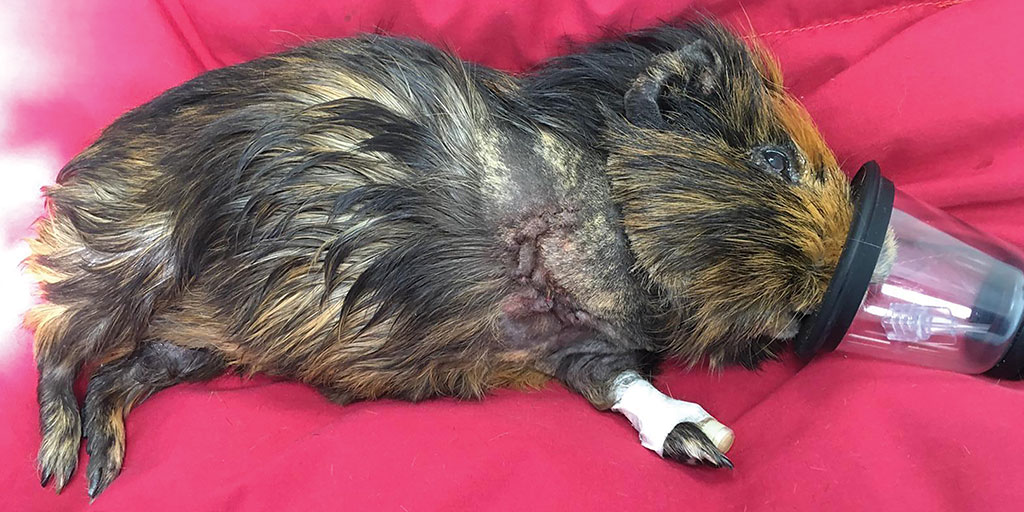
A forelimb amputation in a guinea pig with osteomyelitis
Guinea pigs are commonly-owned, exotic small mammals and present frequently to veterinary surgeons in general practice. Small mammal limb injuries...

Poisoning – the bigger picture: pigs, sheep, goats and horses
The Veterinary Poisons Information Service answer enquiries about any animal – big or small – and although larger animals represent...
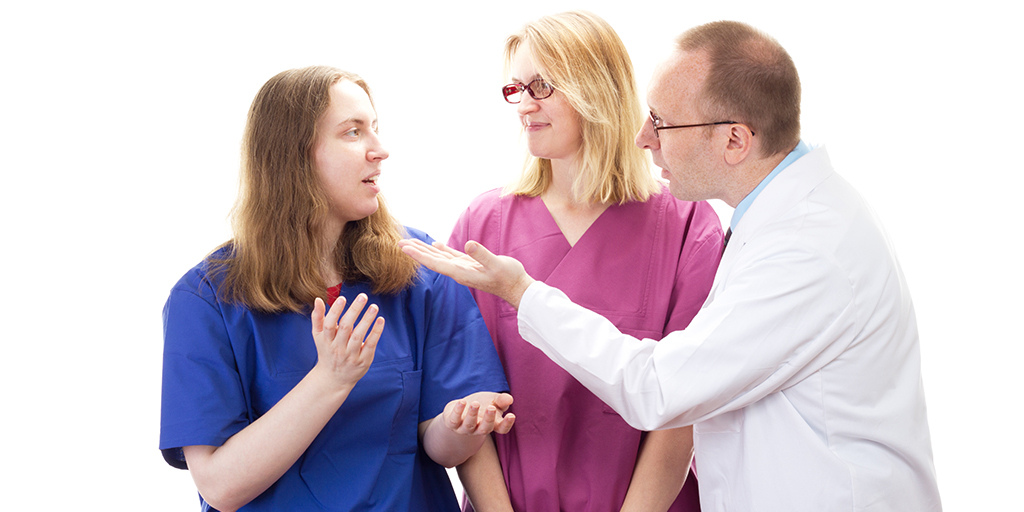
Team member disputes – managing difficult employment relationships before they affect the wider practice
Stephenie Malone, specialist employment solicitor at Harrison Clark Rickerbys solicitors, discusses team member disputes in the veterinary practice. Difference and...
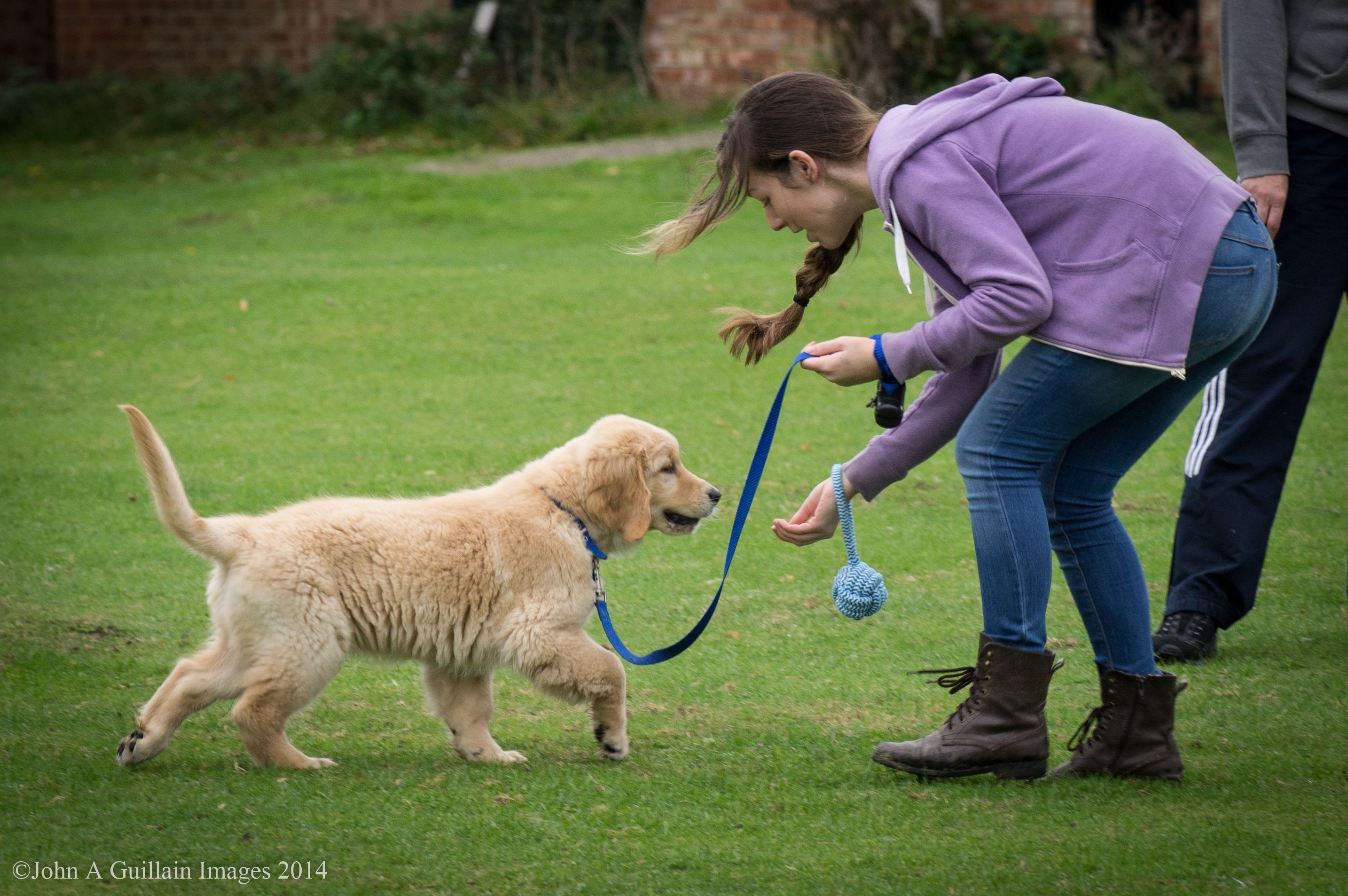
Whom to choose? Clearing confusion about appropriate behaviour and training referral services
In this article, Karen Wild, ASAB-Certificated Clinical Animal Behaviourist, explores the options for veterinary surgeons, veterinary nurses and owners regarding the...
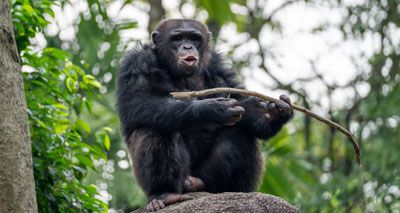
Apes engage in imaginative play, just like humans
Study suggests the ability to pretend likely dates back six million years.
Pretend play is thought to be a uniquely human experience, and one that is crucial to our development.
From turning cardboard boxes into rockets to hosting fancy tea parties, this kind of play lets children explore the world around them safely and creatively.
But new research from John Hopkins University suggests humans may not be alone in this ability. For the first time, scientists have shown that apes can also use their imagination and play pretend.
Researchers created three experiments resembling a child’s tea party to test Kanzi, a 43-year-old bonobo living in captivity.
Kanzi, who can respond to verbal prompts by pointing, engaged with cups of imaginary juice and bowls of pretend grapes, turning long-held assumptions about animal abilities on their head.
In one experiment, the researchers placed two transparent empty cups on a table with an empty pitcher. They then pretended to pour “juice” into both cups, and emptied the juice from one cup, giving it a shake to show it was empty.
When Kanzi was asked where the juice was, he consistently pointed to the correct cup, even after the researchers changed the cup’s location.
In another experiment, the team placed a cup of real juice next to the pretend juice. When asked what he’d like, Kanzi pointed at the real juice almost every time. A third similar experiment with grapes also produced similar results.
The findings, published in the journal Science, suggest that the ability to understand pretend objects likely dates back to our common evolutionary ancestors, some six to nine million years ago.
Study co-author Christopher Krupenye, a Johns Hopkins assistant professor in the Department of Psychological and Brain Sciences, said: "Imagination has long been seen as a critical element of what it is to be human, but the idea that it may not be exclusive to our species is really transformative.
"Jane Goodall discovered that chimps make tools, and that led to a change in the definition of what it means to be human. And this, too, really invites us to reconsider what makes us special and what mental life is out there among other creatures."
Image (C) Shutterstock.com/Darcy Perkins.

VMD invites students to apply for EMS placement
The placement will explore how veterinary medicines are authorised.
The Veterinary Medicines Directorate (VMD) is inviting applications from veterinary students to attend a one-week extramural studies (EMS) placement in July 2026.
Students in their clinical years of study have until 28 February to apply for the placement, which takes place at the VMD’s offices in Addlestone, Surrey, from 6-10 July 2026.
Through a mixture of lectures and workshops, the placement will explore how veterinary medicines are authorised, non-clinical career opportunities, and other important aspects of the VMD’s work.
For more information and to complete an application form, visit gov.uk
Image (C) Shutterstock/PeopleImages.
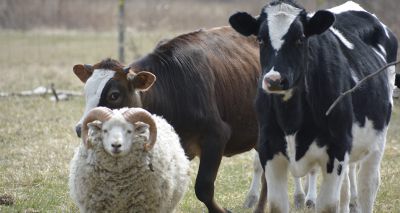
Survey seeks ruminant sector views on antimicrobial stewardship
The survey is open to anyone working in the UK farming sector.
A new survey is seeking views of people working in the UK ruminant sector on how to tackle the challenge of demonstrating responsible antibiotic stewardship.
Forming part of a wider, collaborative initiative, the results will help identify the types of data available so that challenges with data collection can be better understood and addressed.
Anyone working in the UK farming sector, including vets and farmers, is encouraged to complete the survey, which is available at app.onlinesurveys.jisc.ac.uk
Image (C) akslocum/Shutterstock.
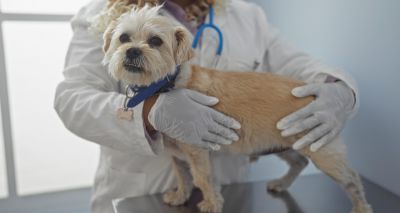
Early gonadectomies linked with Cranial Cruciate Ligament Disease
A study has connected early gonadectomy procedures with an increased chance of Cranial Cruciate Ligament Disease (CrCLD) in male and female dogs.
Analysis has suggested that a gonadectomy before 2.9 years in female dogs and 2.2 years in male dogs substantially increased their risk.
The research analyses data from over 20,000 dogs, spanning a range of 36 years. It examined the link between cumulative gonadal hormone exposure and the risk of CrCLD in dogs.
Instead of categorising dogs with arbitrary age categories, the analyst treated gonadal hormone exposure as a continuous variable.
The study revealed the prevalence of CrCLD as 2.49 per cent in females and 1.89 per cent in male dogs.
The risk of CrCLD was found to be higher in dogs which had the least gonadal hormone exposure. This was at 1054 days for female dogs and 805 days for male dogs, with the minimum risk at approximately 2.9 years for females and 2.2 years for males.
Researchers state that the gonadectomy is highly likely to be linked with an increased risk of CrCLD. This suggests that the original suggested cutoff of two years of age is not scientifically grounded.
Based on these findings, the study concludes that removal of gonadal hormones should only be performed after musculoskeletal maturity, if at all.
Dr Daniel Low, lead author of the study, said: “There is an increasing body of evidence associating the development of CrCLD with neutering in both male and female dogs, and that the timing of neutering matters. However, we should not overlook the health benefits of neutering in reducing the risk of other diseases.
“In today’s day and age, practice neutering policies may no longer be appropriate and every decision to neuter is a clinical decision made by the attending veterinary surgeon after consultation with the animal owner”.
The full study can be found in the Journal of Small Animal Practice.
Image © Shutterstock.com/Krakenimages.com

Study warns of 'inadequate' fertility policies in vet workplaces
A new study has explored veterinary professionals’ workplace experiences with miscarriage, infertility and assisted fertility (MIAF).
In a cross-sectional survey, results revealed that over a fifth of respondents had left or considered leaving their job due to its approach to MIAF issues.
The online study saw 525 veterinary professionals describe 671 self-defined MIAF experiences from workplaces. It sought to investigate how their working environments and employers had impacted their experiences with MIAF.
Many of the responses to the survey described significant challenges with taking leave for MIAF-related situations.
Under practice policy, staff undergoing fertility treatments are typically permitted a maximum of three days leave for fertility appointments. This was not considered sufficient to complete investigations and treatments.
There also appeared to be a lack of transparency, with some respondents unaware whether their pay would be docked when they attended hospital appointments or that they would have to use sick leave.
Multiple respondents said they felt under pressure to remain at work in clinical practice, even while they were actively miscarrying.
Some did not even ask permission to leave work, due to concern for their job security and the workload they would leave behind. Meanwhile others had been told by managers that they could not leave until a coworker relieved them, or even that their time off was unnecessary.
Working during pregnancy loss was particularly common in cases of lone working, working out of hours, or ambulatory calls.
Where respondents were able to take leave after pregnancy loss, there was an absence of procedural policy. This meant that some respondents received daily messages from their workplace asking when they would be back.
Those who did work while pregnant found different challenges in avoiding anaesthetic drugs, radiation exposure, cytotoxic drugs and other physical hazards. Working only risk-assessed activities was particularly difficult for those lone working, short-staffed or working in large animal practice.
Researchers reflect that these experiences, and others, have had a profound impact on the mental health, wellbeing and workforce retention of veterinary practices. They have called for urgent action against inadequate policy, insufficient leave, and insensitive workplace communication.
The full study can be found in the journal VetRecord.
Image © PeopleImages/Shutterstock.com
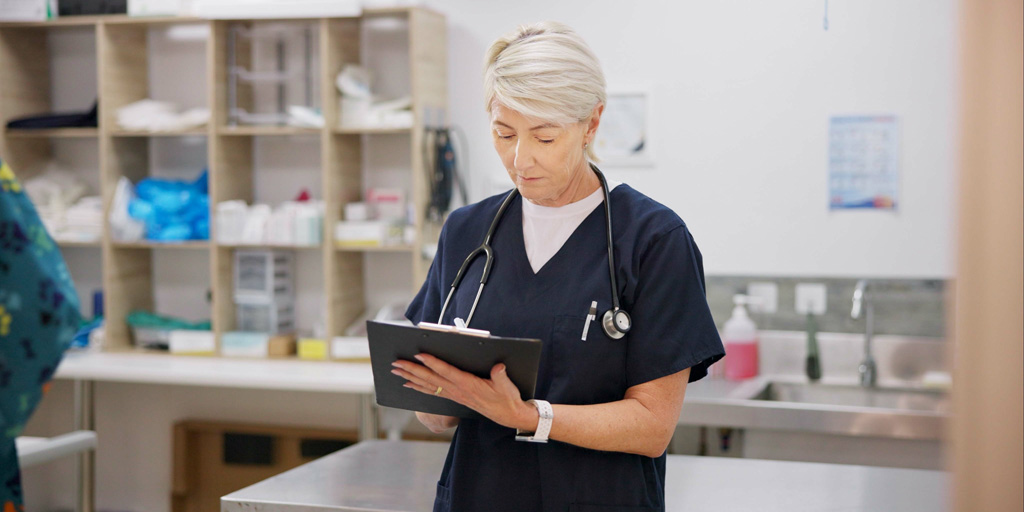
Inaugural National SQP Week announced
Regulators have announced the first nationwide event to celebrate the role of Suitably Qualified Persons (SQPs) in practice.
The UK’s first ever National SQP Week is set to take place from 5 June 2026 until 12 June 2026.
The campaign is set to celebrate the role of SQPs, also known as Animal Medicines Advisors, in safeguarding the health of livestock and pets across the country. It will be led by three industry regulators: AMTRA, Vetpol and VetSkill.
Regulators are encouraging stakeholders across the profession to take part, including veterinary practice teams, pharmaceutical companies and animal owners. Those taking part will have access to a campaign kit to make participation as easy as possible.
The campaign kit will include downloadable resources, with logos, posters and activation ideas.
This year’s campaign follows an industry survey, which revealed there was much work to be done to raise awareness of SQP expertise. Only 48 per cent of animal owners knew that SQPs were qualified and part of a regulated industry.
The survey suggested that even parts of the veterinary and wider animal medicines profession were not fully aware of the role of SQPs.
Stephen Dawson, AMTRA CEO, said: “SQPs are highly qualified professionals, yet many people who interact with them don’t fully understand their expertise—or the benefits they can bring. This campaign is here to change that. SQPs provide essential advice to millions of pet owners every year.
“By boosting the SQP profile, we can ensure the knowledge and expertise an SQP provides is fully utilised for better animal health nationwide.”
Sam Double, VetSkill CEO, said: “Raising awareness of the SQP role in a collaborative manner through this campaign is fundamental for a One Health approach and to enable animal owner understanding of this key role.
“Championing the role of our SQPs collectively across the sector is essential, as is highlighting the unique position that our dual accredited RVNs, who are also on the SQP register, could hold moving forward as the consultation gains momentum on changes to the Veterinary Surgeons Act.”
Image © Shutterstock.com/PeopleImages
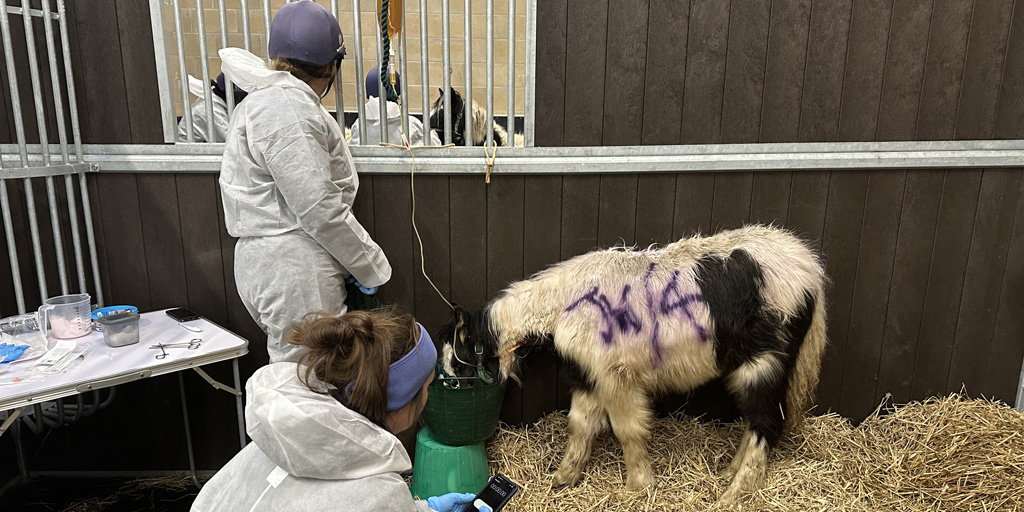
Rescued ponies highlight importance of deworming
A group of ponies is receiving urgent care from World Horse Welfare, after being found critically underweight and infested with worms.
When they arrived on site, the team encountered eleven ponies which were in normal body condition. However, despite living in the same conditions, seven were severely underweight and clearly had worms.
Among the ponies was six-month-old filly Tinker Bell, who was so underweight and burdened that she could be lifted by one person.
Of the seven ponies, three colts were so sick that, despite veterinary treatment, they had to be euthanised on welfare grounds.
Three fillies and a ten-year-old mare, however, made it through their first couple of weeks after rescue. When they were strong enough, they were transported to World Horse Welfare’s Hall Farm premises in Norfolk.
The ponies were still incredibly weak when they arrived, with two of them needing plasma transfusions.
Tinker Bell, Mary Darling, Wendy and Tiger Lily are now recovering under veterinary supervision. Once their blood tests show signs of improvement they will be allowed more time in the field.
Malcolm Morley, a charity director, said: “Encysted redworm, where small redworm larvae hibernate in the gut wall, won’t show up on faecal egg counts, which can give a false sense of reassurance. That’s why owners should seek advice from their vet or a specialist laboratory such as Westgate Labs, which employs suitably qualified staff to help interpret results and guide responsible worming."
Sue Hodgkins, Hall Farm centre manager, said: “For Tinker Bell to have come this far, with the blood test results she’s had and the fact that she’s still with us and fighting, gives me a little more confidence. We’re keeping everything crossed that she keeps that fighting spirit and makes a full recovery.”
Image © World Horse Welfare

Speaker lineup revealed for National Equine Forum
The event will explore artificial intelligence and the modern pre-purchase examination.
Challenges in equine health, management, welfare and environmental responsibility are set to go under the spotlight at this year’s National Equine Forum (NEF).
The event will take place in London on Thursday, 5 March 2026, with talks from leading veterinary professionals, a government minister, and senior industry figures. A free live stream will be made available for those who are unable to attend on the day.
NEF chair Tim Brigstocke said: “At a time when regulatory decisions, environmental changes and technological innovation are having an increasing impact on the equestrian sector, the National Equine Forum provides a vital bridge between government, the veterinary profession and those working at the sharp end.
“Our outstanding lineup of speakers will be addressing some of the most pertinent critical issues, grounded in evidence and informed by practical experience.”
Now in its 34th year, the NEF will include a discussion on the modern Pre-Purchase examination with Dr Mark Georgetti, Dr Lucy Grieve, Dr Sam Cutts and Julia Martin. The panel will explore where vettings can go wrong, how expectations and responsibilities have shifted, and what this means for the horse industry.
RCVS Professor Tim Parkin will chair an exploration into the rapidly growing role of AI in equine health and welfare, while Sarah Jenkins, editor-in-chief of Horse & Hound, will lead a series of special interest topics. Among these include the social value of equestrianism and an update on proposed fireworks legislation.
There will also be a panel discussion chaired by Dr Richard Newton, Director of Epidemiology & Disease Surveillance, University of Cambridge, who will lead a series of equine health risk updates.
The forum will culminate in the Memorial Lecture, which will take the form of an interview with Professor Chris Riggs, director, HKJC Equine Welfare Research foundation and chief advisor. The winner of the Sir Colin Spedding Award 2026 will then be announced.
For more information and to register for the event, visit the National Equine Forum website.
Image (C) NEF.
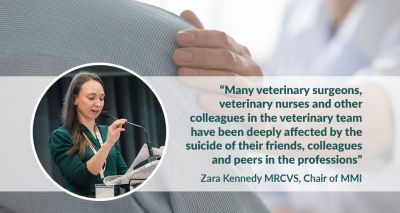
RCVS to require practice-specific suicide prevention plans
The Royal College of Veterinary Surgeons (RCVS) is to introduce new requirements for suicide prevention plans at each individual practice.
From 1 April 2026, all accredited practices must assess the potential risks within their practice setting and put in place measures to mitigate each risk.
The measures will become Core Standards of the Practice Standards Scheme (PSS) for all three practice types. Practices not within the PSS must also meet the requirement.
RCVS says it recognises that different practices will need different measures, based on access to lethal medicines, access to firearms and the likelihood of individuals working alone.
The decision follows two separate ‘prevention of future death’ reports issued by the coroners’ courts. The reports refer to one veterinary surgeon and one layperson who used lethal veterinary medicines to take their lives.
RCVS’ latest changes have been led by its Mind Matters Initiative (MMI). MMI seeks to proactively investigate systematic issues, as it works to minimise the likelihood of people becoming unwell.
In October 2025, MMI launched an RCVS Academy course titled ‘Suicide Awareness Fundamentals'.
The course, which was developed with veterinary mental health experts, examines the contributing factors behind suicide in the profession. It aims to build learners confidence with discussing suicide, reducing stigma and support those in crisis.
Practices are also directed to the British Standards Institution’s guidance on suicide awareness and the Samaritans’ advice on developing a ‘safety plan’ to support someone with suicidal thoughts.
Zara Kennedy, chair of MMI, said: “Many veterinary surgeons, veterinary nurses and other colleagues in the veterinary team have been deeply affected by the suicide of their friends, colleagues and peers in the professions.
“While it may not be possible to prevent every death by suicide, we hope that by taking proactive measures such as the requirement for practices to have suicide prevention plans, we can prevent some. In doing so we can help those people who may be thinking about taking their own lives to get the treatment and help they need.
“Suicide prevention plans are a collection of measures that aim to protect staff, as well as the wider public, by reducing incidences of suicide and this decision by the RCVS Standards Committee aligns with the prevention aspect of the Mind Matters Strategy and the proactive work the initiative has been doing in this area.”
Image © fizkes/Shutterstock.com
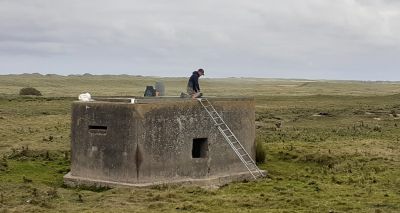
WWII pillboxes converted into common tern habitats
Four derelict Second World War pillboxes have been converted into nesting sites for Scotland’s endangered common tern population.
The pillboxes, located at RSPB Loch of Strathbeg, will protect the seabirds from predators while mimicking the sites where they would naturally build their simple nests.
Originally built in 1940, the pillboxes served as part of an anti-tank line to protect flat beaches from potential invasion. They will now safeguard the common tern, which is in decline.
The conversion was completed as part of the conservation programme 'Species on the Edge'.
As part of the conversion work, the team covered the pillbox roofs with shingle substrate and installed mesh fencing onto wooden frames. The new pillboxes are intended to represent the natural gravel and shingle sites where common terns usually build nests.
The team will also install model terns in the modified pillboxes, accompanied by sound lures playing tern calls, to encourage common terns to nest there.
Common terns face a number of threats, including reduced food availability, avian influenza, as well as danger from both humans and predators. However, it has been their habitat loss which has been particularly damaging.
It is hoped that these new sites will protect the Loch’s common tern population by increasing the availability of breeding habitats. With the protection of the pillboxes, conservationists believe the endangered birds will also be safe from disturbance and predation.
Luke Butler, a Species on the Edge trainee who has been leading conversion work, said: "It's great to be transforming these relics of wartime defence into sanctuaries that could bring new life to the reserve and help create a securer future for Common Terns in Scotland."
Robyn Stewart, Species and Habitats Officer with RSPB and the Species on the Edge lead for the programme’s tern work, added: “The tern pillboxes are maybe one of the most innovative examples of upcycling I've come across and are a testament to the creativity and dedication of Luke and the wider RSPB Loch of Strathbeg team who have supported this project.
“The east coast of Scotland is incredibly important for terns and the pillboxes will provide some much-needed breeding habitat for common terns to raise their chicks free from disturbance and predation.”
Image © RSPB Loch of Strathbeg

RCVS Knowledge expands 2026 QI events
RCVS Knowledge has announced dates and locations for this year’s Quality Improvement (QI) training events.
Alongside online sessions, this year’s QI events will visit three different cities in the UK: London, Bristol and Newcastle.
The dates of the events are:
- Wednesday, 4 March 2026 – 1 Hardwick Street, London
- Wednesday, 15 July 2026 – Mercure Bristol North the Grange Hotel
- Wednesday, 14 October 2026 – DoubleTree by Hilton, Newcastle International Airport
The new dates form part of RCVS Knowledge’s commitment to ‘meet teams where they are’. The learning platform is attempting to bring its QI training to more regions.
The training syllabus will demonstrate how veterinary teams can use QI principles to improve patient safety, clinical outcomes and team learning.
Through the course, attendees will learn how to build structured systems to learn from errors. They will be guided in the use of QI tools, techniques and mindset.
It will also be an opportunity to collaborate, exchange strategies and experiences, and learn from experts.
Lou Northway, RCVS Knowledge clinical lead, said: “It’s time to put ‘we’ve always done it this way’ in the bin and embrace a ‘could it be better?’ mindset.
“We’re not just talking about clinical outcomes but full-circle practice life. What would you like to improve in your workplace? Come along and let us show you how you can do it!”
Early bird tickets are £150 per person, with discounts for bookings made in groups. Early bird tickets for the London event close on 11 February.
Image © bbernard/Shutterstock.com
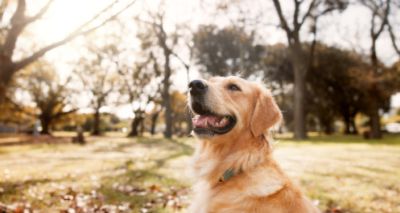
Hearing angry or happy voices can alter dogs' balance, study finds
Researchers investigate the effect of human voices on postural stability.
The emotion expressed in a human voice can affect a dog’s sense of balance, new research has found.
The study, led by researchers at the University of Veterinary Medicine, Vienna, monitored 23 pet dogs on a pressure-sensing platform while they listened to recordings of happy and angry human voices.
The findings, published in PLOS One, reveal that angry voices were most strongly associated with destabilisation of the dogs’ balance, compared with no sound at all.
Happy voices produced mixed responses. While 57 per cent of the dogs showed signs of destabilisation, 43 per cent displayed increased stabilisation — or a response described as “freezing”.
The authors write: ‘These exploratory findings suggest that the emotional arousal triggered by human voices can have both stabilizing and destabilizing effects on canine balance. Angry human voices were associated with the greatest destabilizing effect.’
Previous studies in humans suggest external sounds can influence stability, with high frequencies linked to destabilisation and white noise associated with stabilisation, However, few studies have explored how sound affects balance in animals.
The team suggests that further research could explore whether prior experiences affect individual dogs’ reactions, and whether freezing in response to happy voices relates to anticipatory adjustments in preparation for voluntary movement.
Image (C) PeopleImages/Shutterstock.

Meerkats use 'sunning calls' to maintain relationships
A new study has revealed how meerkats use ‘vocal grooming’ to manage relationships and maintain their social hierarchy.
Research from the University of Konstanz examined how these vocalisations, known as sunning calls, could help meerkats achieve social bonding through sound rather than touch.
Meerkats live in cohesive groups with a strict dominance hierarchy. This hierarchy is led by a dominant breeding pair, supported by subordinates which rear offspring, defend territory and maintain social stability.
Social bonding is usually maintained through physical grooming, with individuals touching each other’s fur or skin to remove parasites or dirt.
However, while this is a well-established method of reinforcing social bonds, it requires close contact and time. This makes it challenging for large or spatially dispersed groups.
Researchers have now discovered the use of sunning calls as an alternative, low-key way for meerkats to stay socially connected and manage group hierarchies. These soft, tonal vocalisations are produced by meerkats during morning sunning sessions.
While these sounds may resemble noises typically used for conflict reduction, their use during meerkats’ joint morning sunbath suggests they are instead a form of social interaction.
To examine their use, sunning calls were recorded from a known meerkat group in the Kalahari Desert. Recordings were made from individuals where their social status was known, then played back to other focal group members for their responses.
Researchers discovered that more subordinate members of the mob increased their calling significantly when exposed to dominant individuals. Meanwhile, dominant meerkats showed little change in response to calls from subordinates.
Vocal exchanges were more intensive when they were directed up the hierarchy, suggesting they instead function as appeasement or relationship management to higher group members.
Female meerkats responded more strongly to recorded sunning calls than males, which suggested there may be more sex-based difference to social strategies.
Researchers suggest that meerkats are therefore using sunning calls to support social interaction, particularly in groups without close contact or time. The communication was especially important to lower hierarchy meerkats seeking to stabilise or improve their relationships.
Vlad Demartsev, a postdoctoral researcher who led the study, said: “Our findings suggest that these vocal exchanges are not random chatter, but a strategic part of meerkat social life,”
“Engaging in continuous reciprocal interaction can signal cooperation and commitment, which may promote tolerance and improve social affinity. For subordinate meerkats, stable relationships with dominants are crucial, and vocal exchanges might be one of the mechanisms to achieve that.”
The full study can be found in the journal Behavioural Ecology.
Image © Shutterstock.com/Brian Stuart Nel
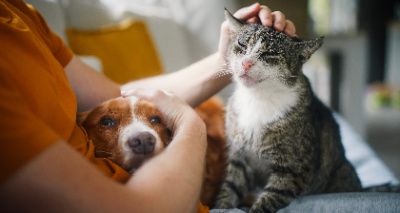
Animal owners sought to join public advisory panel
"The work of the group forms a vital part of our continual push” — Lizzie Lockett, RCVS CEO.
The RCVS is calling on veterinary professionals to help recruit new members to its public advisory panel.
Launched in 2023, the Public Advisory Group (PAG) brings together animal owners and keepers to inform and guide the RCVS in its role as a regulatory body for veterinary professionals.
New recruits will join a pool of 30 individuals, from which smaller groups will be drawn to support particular tasks. These tasks may include helping the RCVS understand emerging issues, piloting surveys and consultations, and acting as a sounding board for campaigns and messaging.
RCVS CEO, Lizzie Lockett, said: "Since its inception, our Public Advisory Group has provided us with valuable insight into animal owner and keeper opinion and experience, helping us ensure that the veterinary professions continue to meet the needs of clients and animals alike, both now and in the future.
"The work of the group forms a vital part of our continual push to improve how we work with - and communicate to - those who use veterinary services. It has been particularly useful to us during our work to respond to the Competition and Markets Authority investigation. We are particularly looking to increase the number of those involved in caring for camelids, cattle, and exotics to ensure we have proportionate representation across all animal owning groups.
"As veterinary professionals who work with the animal owning public every day, we would be grateful if you could share this important opportunity within your networks."
Current PAG member, Karren Morgan-Pinn, added: "As someone who listens to public concerns over veterinary care daily, joining the PAG has given me the opportunity to voice those opinions and concerns from lesser-known sectors.
"It has been refreshing to have insight into and be involved with regulatory processes that the general public are rarely consulted on. The RCVS’ passion for veterinary care and welfare is evident by them ensuring communication gaps are bridged by funding these panels."
More information about the PAG, including how to apply, is available on the PAG Animal Owner’s webpage. Applications close at 5pm on Friday 27 February 2026.
Image (C) Jaromir Chalabala/Shutterstock.

Sam Strain elected as BVA's NI president
The British Veterinary Association (BVA) has elected Dr Sam Strain as president of its Northern Ireland branch for 2026-2027.
He took the role at the BVA NI Branch Annual General Meeting on Thursday, 29 January 2026 at the Veterinary Surgeons Supply Company.
This year’s presidential theme will take a One Health approach, and is titled ‘Healthy Animals, Healthy People, Healthy Environment’. The BVA’s NI Branch will seek to understand the three-way interaction of these concepts.
Dr Strain said: “During my presidency I want to improve our understanding of this three-way interaction.
“We need to ask ourselves - what current and emerging approaches can be used in horizon scanning and improving our understanding of current and future disease threats? In what ways can the veterinary profession, in its range of capacities, develop new tools and interventions to protect the wellbeing of people? How can animal health measures contribute to environmental improvement and meeting emission targets?”
His presidential year comes amid concerns for Northern Ireland’s post-Brexit medicine availability. Dr Strain confirmed he would be monitoring medicine availability and assessing any new schemes implemented by the UK government.
There will also be a focus on the Veterinary Surgeons Act (1966), which could see major reforms following the announcement of an eight-week public consultation on 28 January 2026.
He added: “I’m both honoured and looking forward to supporting the veterinary profession within Northern Ireland. The issues facing the profession are wide ranging, from the most challenging of infectious diseases such as bovine TB to emerging diseases such as bluetongue, from reviews into dog breeding legislation to equine traceability, the list is long and important.
“I want to champion the role of the veterinary profession within Northern Ireland by working positively and constructively with partners in government, academia, industry, and practice, to help find solutions to problems both old and new.”
Dr Strain’s election follows his term as junior vice-president in 2025. His presidency succeeds that of Dr Kirsten Dunbar, who will now sit as senior vice-president in the coming year.
Image © BVA
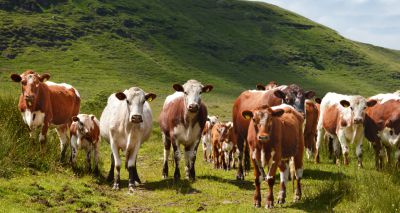
Stricter BVD measures in force for NI
The next phase of Northern Ireland’s Bovine Viral Diarrhoea (BVD) control measures have come into force for herd keepers.
As of 1 February 2026, there will no longer be a grace period on BVD restrictions in the country. Herd restrictions will apply immediately once any animal in a herd receives a positive or inconclusive BVD virus test result.
This is the latest stage of a phased programme of measures introduced by the Department of Agriculture, Environment and Rural Affairs (DAERA). It forms part of the BVD Control Order (NI) 2024, first launched on 1 February 2025, which seeks to eradicated the disease in Northern Ireland.
However, while many stricter measures are now in force, some restrictions have been postponed.
The implementation of planned movement restrictions on breeding females in herds with a BVD-positive animal has been postponed by a few weeks. This is the result of a delay in changes to DAERA’s database, which is required to manage the application and removal of such restrictions.
Further communications on these measures are set to be announced in the coming weeks.
Andrew Muir, DAERA minister, said: “The stricter measures coming into effect on 1 February 2026 are designed to quickly address infection risks by preventing the movement of potentially BVD infected animals, and protect the progress we have made so far.
“In doing so we will help to stop new persistently infected calves being born and protect neighbouring farms."
“My message to herd keepers is clear - take prompt action, isolate and remove infection sources, and ensure all animals are tested on time. By acting decisively and working together, we can safeguard animal welfare, reduce financial losses to farms, and complete the job of eliminating BVD from Northern Ireland once and for all.”
Image © Shutterstock.com/Ballygally View Images
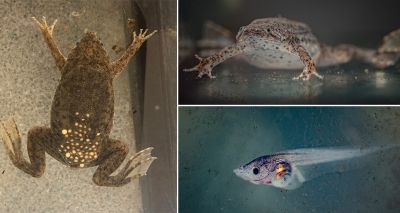
Rare aquatic toads born at Chester Zoo
The species hatches from eggs in the mother’s back.
Four rare aquatic toads have been bred at Chester Zoo for the first time, as part of an international conservation breeding programme.
The Surinam toads, named Ripley, Lambert, Ash and Sallas from the Alien films, are now living in a specially created habitat in the zoo’s Tropical Realm.
Native to South America, the Surinam toad has a unique breeding process in which eggs are laid into the skin of the female’s back. The fertilised eggs are then pressed into the skin by the male.
Adam Bland, assistant team manager for amphibians at Chester Zoo, explains: “After implantation, the skin grows around these little white blobs in just a few hours. It’s a really quick process. The tadpoles form under her skin until they’re ready, and then they burst free and swim out from holes in her back".
The Surinam toad often sparks interest online for its links to trypophobia – an intense fear or disgust triggered by clusters of eggs or small holes. However, keepers have reassured visitors that the toads should be fine to view most of the time, as the eggs are only visible for a short period.
The species spends its entire life underwater and has a flattened body that helps them blend in with leaves on riverbeds. While the toads invest heavily into raising their young until hatching, they can pose a risk once the tadpoles emerge.
Mr Bland continued: “They’re extremely greedy and will eat almost anything that moves. We remove the tadpoles quickly to give them the best possible chance of survival.”
He added that working with unusual species like the Surinam toad helps improve understanding of amphibian biology at a time when many species are in decline.
“They aren’t animals people expect to see,” he said. “But that’s exactly why they’re so effective for helping people understand how amphibians live - and why we’re trying to prevent their extinction.”
Image (C) Chester Zoo.
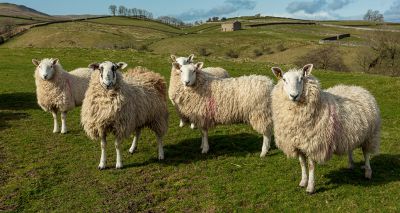
Vaccine uptake needed for sheep abortion control, data shows
Only 26 per cent of flocks vaccinated against toxoplasmosis in 2024.
Research from the Agriculture and Horticulture Development Board (AHDB) has highlighted opportunity for farmers to increase abortion control in flocks.
The data reveals that, while uptake had already reached 50 per cent for enzootic vaccines, just 26 per cent of flocks were vaccinated against toxoplasmosis.
Although the sector has struggled with vaccine availability in the past, the board believes there is opportunity for greater protection in the national flock. Enzootic abortion and toxoplasmosis are identified by the Animal and Plant Health Agency as two of the most common causes of sheep abortion in Great Britain.
MSD Animal Health’s FlockCheck programme collected diagnostic data from 400 sheep flocks in 2025.
This data revealed that 79 per cent of flocks had been exposed to Toxoplasma gondii. Meanwhile, 35 per cent of flocks had been exposed to Chlamydia abortus, the bacterium which causes enzootic abortion.
Enzootic abortion is highly contagious, occurring primarily through feed contaminated with cat faeces. Infected ewes will show no signs until late pregnancy and can become lifetime carriers.
Since parasite eggs can survive for over a year, vaccination is considered the most reliable form of protection.
MSD Animal Health says that their results support farmers in making targeted vaccination decisions. This helps them safeguard flocks and maximise lambing outcomes.
Where abortion rates are exceeding two per cent, or scanning results prove lower than expected, farmers can get practical support through the subsidised FlockCheck scheme. The scheme, available through veterinary practices until 30 June 2026, provides blood testing for six to eight aborted or unvaccinated ewes, or for barren ewes and those producing weak lambs.
The tests will help farmers to recognise the underlying causes of abortions, as well as informing the value of a pre-tupping vaccination programme.
Dr Kat Baxter-Smith, MSD veterinary advisor, said: “If results highlight an issue with either disease, both can be controlled effectively through a simple vaccination programme,
“Abortion diseases like enzootic abortion and toxoplasmosis often remain hidden until significant losses occur. Once established, they are extremely difficult and costly to manage, making prevention through vaccination vital.”
Image © Serenity Images23/Shutterstock.com
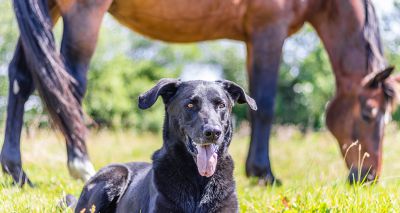
VMD blog explores AMR surveillance in pets and horses
Expert explains how a new programme aims to bridge critical data gaps.
The Veterinary Medicines Directorate (VMD) has launched a new blog series to raise awareness of its work to improve animal welfare.
Designed to complement its regulatory guidance pages, ‘VMD Voices: Our Experts Explain’ shares insights into the VMD’s non-regulatory work, international regulatory support, and best practice for vets and retailers, illustrated through real-life examples.
In the first post, Dr Tamsin Dewé, head of antimicrobial resistance (AMR) Surveillance and Evidence at the VMD, outlines how the organisation is working to strengthen AMR surveillance in pets and horses.
Dr Dewé explores why it’s important to understand antimicrobial resistance in these animals, and highlights new initiatives to address current gaps in surveillance. This includes the world’s first pilot project to develop a national AMR surveillance programme for health cats and dogs.
Led by Scotland’s Rural College (SRUC), the programme aims to establish a baseline level of AMR in healthy pets and identify the best surveillance methods.
Dr Dewé’s writes: ‘Researchers at SRUC will collect faecal samples from dogs and cats in a range of settings: households, veterinary practices and rescue centres. Using established microbiological techniques, the team will detect resistant bacteria and explore complimentary approaches such as national pet surveys and expert consultations.’
‘VMD Voices: Our Experts Explain’ will also examine how the VMD works to protect vets from unsafe or illegal activity, alongside insights into what it’s like to work at the VMD.
Image (C) Wirestock Creators/Shutterstock.com



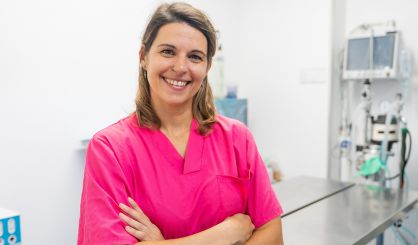

418x245.jpg)
